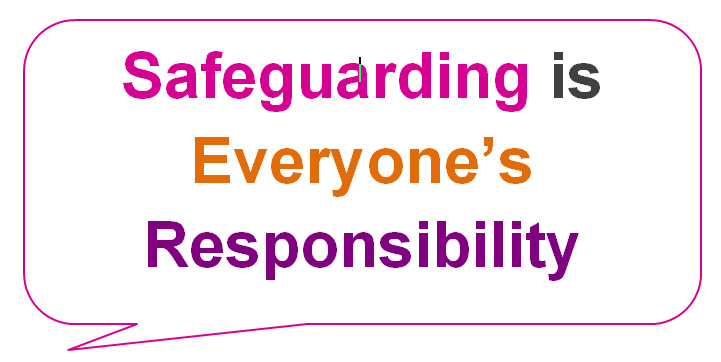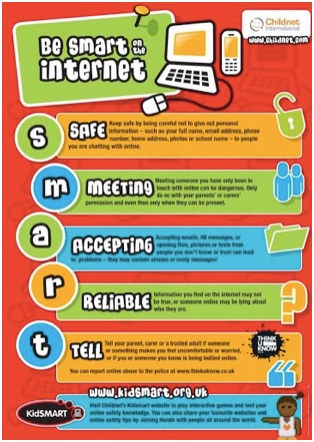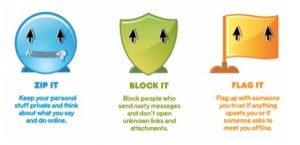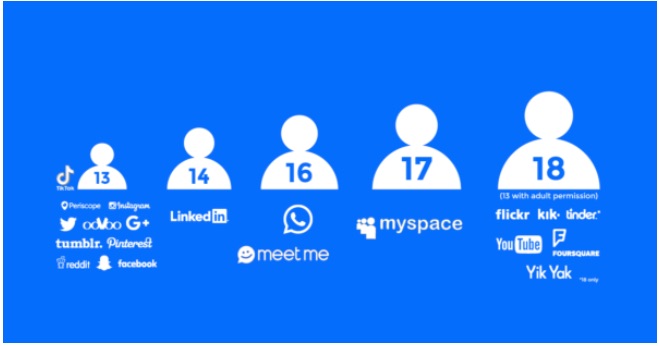Safeguarding
Safeguarding and Online Safety
‘Everyone in the education service shares an objective to help keep children and young people safe by contributing to:
Providing a safe environment for children and young people to learn in education settings; and
Protecting children from maltreatment: preventing impairment of children’s health or development: ensuring that children grow up in circumstances consistent with the provision of safe and effective care: and taking action to enable all children to have the best outcomes.
Keeping_children_safe_in_education_from_1_September_2025.
Our Commitment
South End Junior School, is committed to safeguarding and promoting the welfare of all of its pupils and is the responsibility of all school staff, governors and volunteers.
South End Junior will therefore:
* Establish and maintain an environment where children feel secure and are encouraged to talk and are listened to.
* Ensure that staff are able to identify welfare concerns and take appropriate action to address their concerns
* Ensure children know that there are adults in the school whom they can approach if they are worried
* Include opportunities in PHSE curriculum for children to develop the skills they need to recognise and stay safe from abuse
* Recognise that each pupil’s welfare is of paramount importance and that some children may be especially vulnerable to abuse e.g. those with special educational needs, those living in adverse circumstances, eg those who witness violence.
Our Safeguarding Designated Leads are:

Miss Gurdip Kaur
Headteacher and Lead Designated Safeguarding Lead

Mrs Lisa Gibbs
Deputy Headteacher & Deputy Designated Safeguarding Lead

Mrs Amy Izycky
Director of Inclusion & Deputy Designated Safeguarding Lead
What to do if you have a safeguarding concern
During the school day please contact Miss Kaur
Designated Safeguarding Leader
01933 314611
Email: gkaur@southend-jun.northants.sch.uk
OUT OF SCHOOL HOURS
If there is no immediate danger or if you need advice, contact the Northamptonshire Multi-Agency Safeguarding Hub: Telephone: 0300 126 7000 (Option 1).
Reports can also be made online Report a concern (nctrust.co.uk)
If it is an emergency and you think that a child may be in immediate danger please contact the emergency services directly by calling 999. If you need to contact MASH urgently during the evening, at night or at the weekend, please phone the MASH out-of- hours team on 01604 626 938

Online Safety
Online Safety is an important part of keeping children safe at South End Junior School. We have extensive security measures in place in school, which are monitored both internally and externally, to help safeguard pupils from potential dangers or unsuitable material. Any Online Safety incidents are recorded and managed.
At School
Online Safety is taught to all pupils explaining and demonstrating how to stay safe and behave appropriately online through our Computing and PSHE lessons. We also use “Be Internet Legends” by Google as an accompaniment which encourages children to be:

As part of your child’s curriculum and the development of computer skills, we also provide access to the internet through Times Tables Rockstars, Spelling Shed and Project lessons (for research).
We strongly believe that the use of the web and email is hugely worthwhile and an essential tool for children as they grow up in the modern world. But because there are always concerns about children having access to undesirable materials, we have taken positive steps to deal with this risk in school. Our school internet access provider operates a filtering system that restricts access to inappropriate materials.
At the start of the school year, each class recaps how we can all stay safe online and the dangers we may face on the internet. We also ask every child to sign an Acceptable Use Agreement so that we know they have read and understood our school’s rules on staying safe. We use resources such as CEOP – The Child Exploitation and Online Protection Centre – to explore the dangers to children and teach them key rules when online to avoid such dangers. Safer Internet day is always reflected upon.
At South End Junior’s we follow the SMART rules:
S – SAFE: Keep safe by being careful not to give out personal information to people. This means your full name, home address, home phone number, your school name plus many more.
M – MEETING: Meeting someone you have only been in touch with online can be dangerous. How do you know that they are who they say they are? You should never meet up with someone you have met online.
A – ACCEPTING: Accepting emails, instant messages like face-chat, or opening files, pictures or texts from people you don’t know or trust can lead to problems – they may contain dangerous viruses. If in doubt delete it and then find a grown up you trust and tell them.
R – RELIABLE: Information you find on the internet may not be true, or someone online may be lying about who they are.
T – TELL: Tell your parents/carers or a trusted grown up if someone or something makes you feel uncomfortable or worried online. Examples of trusted adults could be your teacher, caretaker, volunteers, office staff or your headteacher.

“Zip it, block it, flag it” is also the desktop background to all SEJ chromebooks, (children and staff too) and can also be seen in classrooms and shared areas.

We can only be successful in keeping children safe online if we work with parents to ensure our Online Safety message is consistent. It is important that parents speak to their children about how they can keep safe and behave appropriately online.
At Home
As a parent, you’ll know how important the internet is to children – they use it to learn, play, socialise and express themselves. It’s a highly creative place with amazing opportunities. But the technology children use every day can seem a bit daunting, and you might worry about the risks your child could face online – such as bullying, contact from strangers or the possibility of them seeing illegal or inappropriate content. Here are some conversation starter ideas from www.childnet.com
- Ask your children to tell you about the sites they like to visit and what they enjoy doing online.
- Ask them about how they stay safe online. What tips do they have for you, and where did they learn them? What is OK and not OK to share?
- Ask them if they know where to go for help, where to find the safety advice, privacy settings and how to report or block on the services they use.
- Encourage them to help. Perhaps they can show you how to do something better online, or they might have a friend who would benefit from their help and support.
- Think about how you use the internet as a family. What could you do to get more off of the internet together and further enjoy your lives online?
It’s important to be realistic – banning the internet or technology will not work, and it often makes a child less likely to report a problem. Education around safe use is essential.
Please remember:

Take a look at the User Guides on how to keep your children safe online:
- Facebook privacy
- Google safe search
- Jargonbuster
- Thinkuknow primary parents helpsheet
- Xbox 360 settings
NSPCC – The Pants Rule
Please click on the link below for more information about keeping children aware and safe

Prevent Strategy
As part of South End Junior School’s on-going safeguarding and child protection duties we are fully behind the government’s Prevent Strategy.
From 1 July 2015 all schools are subject to a duty under section 26 of the Counter-Terrorism and Security Act 2015, in the exercise of their functions, to have “due regard to the need to prevent people from being drawn into terrorism”. This duty is known as the ‘Prevent Duty for Schools’.
At South End we build pupils’ resilience to radicalisation by promoting fundamental British values and enabling our pupils to challenge extremist views. You can read about what we do to promote British values in the relevant section of our website.
The statutory guidance refers to the importance of Prevent awareness training to equip staff to identify children at risk of being drawn into terrorism and to challenge extremist ideas. All staff have also completed the online training on the Prevent Strategy.
http://educateagainsthate.com/parents/
This link is for everyone with an interest in the emotional wellbeing and mental health of children and young people in Northamptonshire. We want to make sure that you, parents, professionals and other people working with children and young people are aware of local services, training and support materials.
